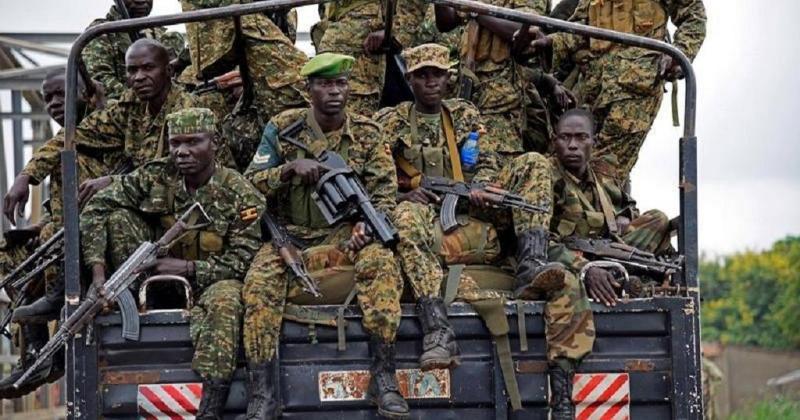Africa-Press – Rwanda. In 1998, the political atmosphere in Democratic Republic of Congo was extremely disastrous as factions fought so hard for control of the vast mineral rich country.
Uganda, Rwanda and Burundi feared their rebels would launch attacks against them, so they moved into DRC to pursue the rebels. The security situation in DRCs Eastern region has never returned to normal despite UN peacekeeping intervention.
President Felix Tshisekedi recently okeyed a military agreement with Uganda to allow Uganda Peoples Defence Forces to enter DRC and jointly conduct operations against the Allied Democratic Front rebels that have been stationed in DRC for over two decades.
The first time UPDF entered DRC to pursue the same rebels was in 1998. Uganda sent at least 7,000 soldiers to the DRC to fight rebels of the Allied Democratic Forces and to support Congolese fighting the government of late President Laurent-Desire Kabila in 1998.
UPDF Operations to huntdown the ADF rebels in 1998 were never successful mostly on tactical deficiencies, low levels of discipline and poor intelligence gathering and corruption within the force.
For example the UPDF paymaster Capt. Dan Byakutaga fled Uganda with U$1.05 million meant for salaries of soldiers in the DR Congo. Byakutaga has remained elusive till today.
The UPDF operations against ADF were cut short when Uganda army made a bogus mistake of attacking Rwanda Defence Force bases. Rwandan and Ugandan troops fought fierce street battles in the eastern Congolese city of Kisangani. The two sides had been shelling each other for a week.
However, in a decisive and tactical maneuver, Rwandan troops drove Ugandan forces from Kisangani in a fierce seven-hour battle that ended a week of terrifying fight of these former allies.
The arrangements for the final UPDF withdrawal were set out in the Luanda agreement signed by DRC President Joseph Kabila and Ugandan President Yoweri Museveni on September 6th.
Towards the end of 2000, the humiliated Ugandan troops packed their bags and started leaving in batches airlifted by cargo planes direct to Entebbe International Airport.
The final batch of 120 UPDF soldiers left from the headquarters city of Jean-Pierre Bemba’s Ugandan-backed Mouvement de liberation du Congo (MLC). About 1,000 Ugandan troops had been stationed in Gbadolite, the home of the late Congolese leader, Mobutu Sese Seko.
As UPDF pulled out, Congolese “wives” of the UPDF soldiers, some of them carrying babies on their backs and a few belongings, stormed the airport demanding to go with their “husbands”. UPDF commanders and their MLC counterparts refused to transport Congolese women.
However, UPDF commanders later allowed wives and children of some of their soldiers to be airlifted to Uganda. Over 2,000 children fathered by UPDF soldiers (1998-2000) were estimated to have been left behind in the neighbouring Democratic Republic of the Congo (DRC).
Bemba was reported to have said that the UPDF wives issue was a “private affair” and which his leadership had nothing to do with it. But the UPDF spokesman at that time (Capt Felix Kulayigye), was quoted as saying, “Tell me one country which has ever helped to transport home wives and girlfriends of its soldiers?” Question is, in the current deployment, what will UPDF soldiers carry with them this time? Wives, minerals or timber?
For More News And Analysis About Rwanda Follow Africa-Press






